EXHIBITION DOWNLOAD FOR FREE

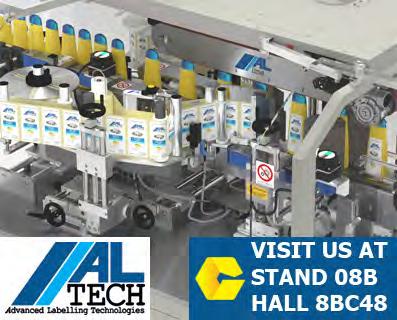


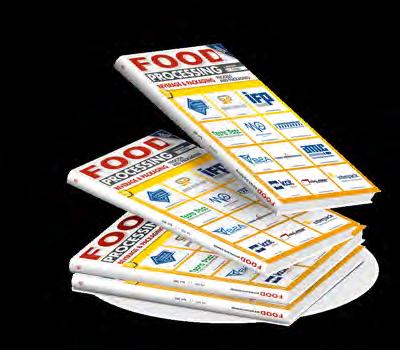









 SONIA V. MAFFIZZONI Editorial Manager
SONIA V. MAFFIZZONI Editorial Manager


The future of packaging is linked to sustainability, there is no doubt about that. In fact, packaging is responsible for so much waste, especially in the food industry. Less plastic, fewer packages, greater efficiency, and total respect for safety are the common imperatives of consumers, institutions, and organizations.How are companies responding? From our publication’s observatory, we can only note a great commitment and the deployment of all resources allocated to research and development.
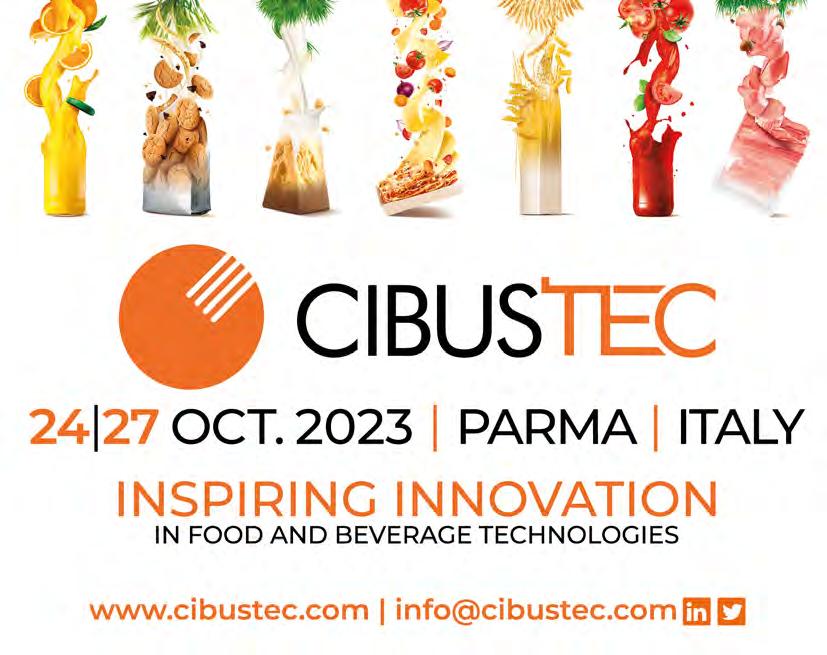



Packaging and non-packaging, made from the same material as the content, biodegradable films, absolute reduction of plastic (but, be careful, not demonization), packaging that is made from food waste, and a complete focus on sustainability. The cards on the table are becoming interesting, and the players have certainly accepted the challenge. As professionals and consumers, we are very curious to know about the next developments. Win the best.

DOWNLOAD THE MAGAZINE YOUR PACKAGING INSIDER DOWNLOAD THE MAGAZINE MAGAZINE newspaper edition packaging in now... editorial management and registered office: Via Cesare Cantù, 16 20831 Seregno (MB) - Italy Tel. +39 0362 244182 +39 0362 244186 UAE: Zeus International Fzco 19th Floor, Conrad Tower Sheikh Zayed Road - DUBAI +971 50 282 7354 web site: www.editricezeus.com e-mail: redazione@editricezeus.com portal: www.itfoodonline.com e-mail: marketing@itfoodonline.com skypeTM: editricezeus PACKAGING
NOW Special Newspaper edition YOUR PACKAGING INSIDER LABELLING
IS
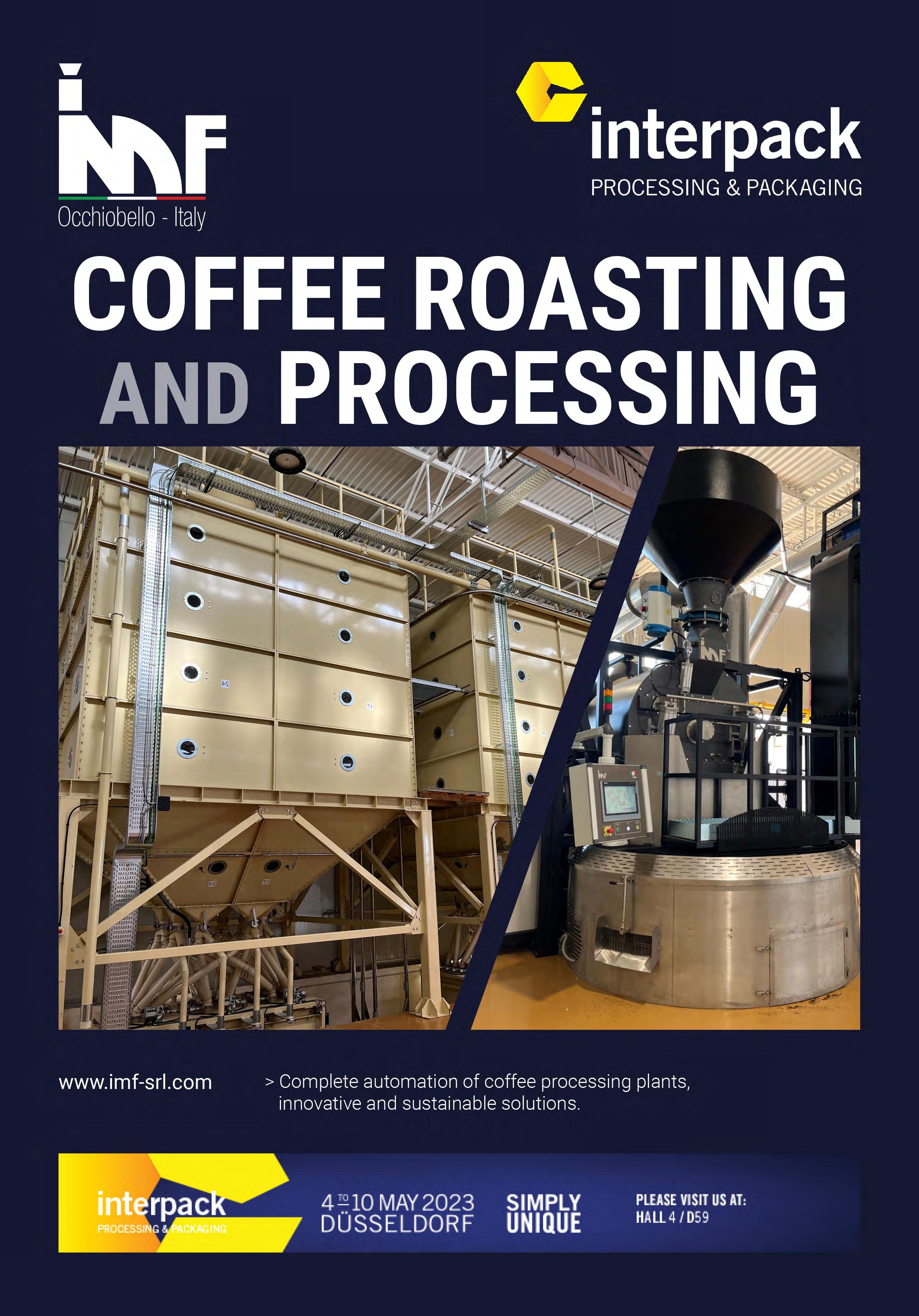
CIBUS TEC 2023: great expectation for the Food & Beverage Technology Exhibition
Cibus Tec (Parma - Italy24/27 October 2023) celebrates its return with a complete overview of food and beverage technologies. Reconfirming its primacy among the events dedicated to solutions for fruit and vegetables products and for the dairy industry, Cibus Tec has been chosen by the market as a reference show for technologies dedicated to meat, ready meals, plant-based products and beverages, hosting all the most important global brands and the best available innovations.
The organizers are also thrilled to announce Cibus Tec - Sweets & Snacks powered by ProSweets Cologne, the brand-new area dedicated to cutting-edge technologies for the con-
fectionery and snack industry, developed with the partner Koelnmesse and some of the most important Italian confectionary companies. In addition to the massive presence of Italian exhibitors, companies from Germany, France, Turkey, Denmark and China represent the largest share of foreign exhibitors. Cibus Tec, which records the occupation of 85% of the available area, has also attracted more than 200 new exhibitors, who have chosen the show to present their innovations.
“Cibus Tec 2023 exhibitors will meet over 40,000 visitors from Italy and the most important global food processing hubs. We expect the usual massive presence of visitors from the United States, South America and Af-
rica, but a huge investment and the collaboration with ITA - Italian Trade Agency will allow us to have over 3,000 Top Buyers of the food industry coming from the Middle East and South East Asia too” said Fabio Bettio, Cibus Tec Exhibition Director.
Cibus Tec, with its innovative nature, will offer one of the largest areas
dedicated to foodtec start-ups and Artificial Intelligence: 100 of the most promising globally companies will present solutions that, from cultivation to packaging, will allow to produce in a sustainable, efficient and safe way.
Visit: www.cibustec.com
ALTECH - Advanced Labelling Technologies LABELLING?
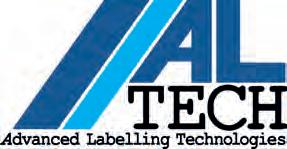
ALTECH is an Italian company specialised in the design and production of industrial labelling machines and coding and identification systems. ALTECH offers a range of machines designed to meet a constantly evolving range of labelling requirements, ranging from labelling heads and print-apply label applicators through
to complete labelling systems able to be installed in packaging lines. ALTECH has maintained a presence in the market since 1991, and during its three decades of activity the quality of the company’s systems has won over an increasingly large number of customers worldwide. So much so, that ALTECH is now to all effects recognised as a world leader
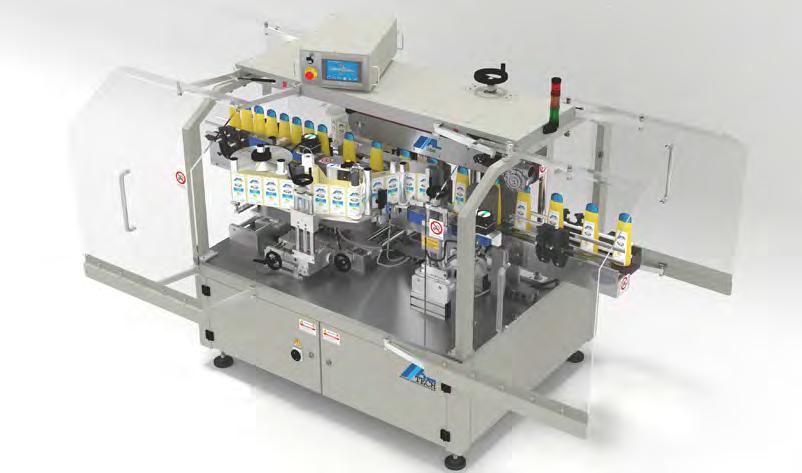
in the sector, with customers in over 50 different countries, and more than 1500 machines manufactured in 2022.
ALTECH will be keeping its traditional appointment in Dusseldorf, exhibiting at Interpack from 4-10 May 2023, where the most representative models in its range, as well as some important new ones, will be on display at Hall 08B stand 8BC48. In particular, the following will be on show:
- The ALstep E, the most compact and economical labelling head on the market.
- The ALritma S, a high-per formance labelling head with touchscreen display.
- The ALritma X, an industr y 4.0-ready labelling head with exceptional performance.
- ALcode AC05, a real-time print-apply unit with air-blow applicator.
- ALcode AC36, a real-time print-apply unit with full-electric applicator with vacuum belts.
- ALline E/C, for front-back labelling of elliptical products, presented with an adjustable axis drive system and automatic format change logic.
- ALcode Robot, for real-time printing and application of labels to pallets, equipped with a robot arm able to reach different application positions and programmable via learning.
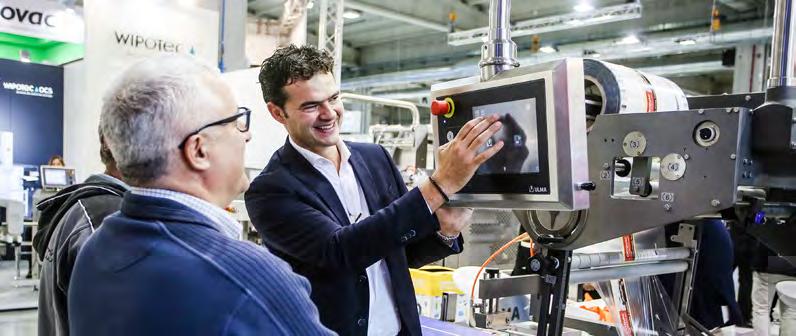
- ALbelt BT52, for top and bottom label application on tubs.
For further information info@altech.it www.altech.it
newspaper edition - 3 packaging in now...
EXHIBITION?

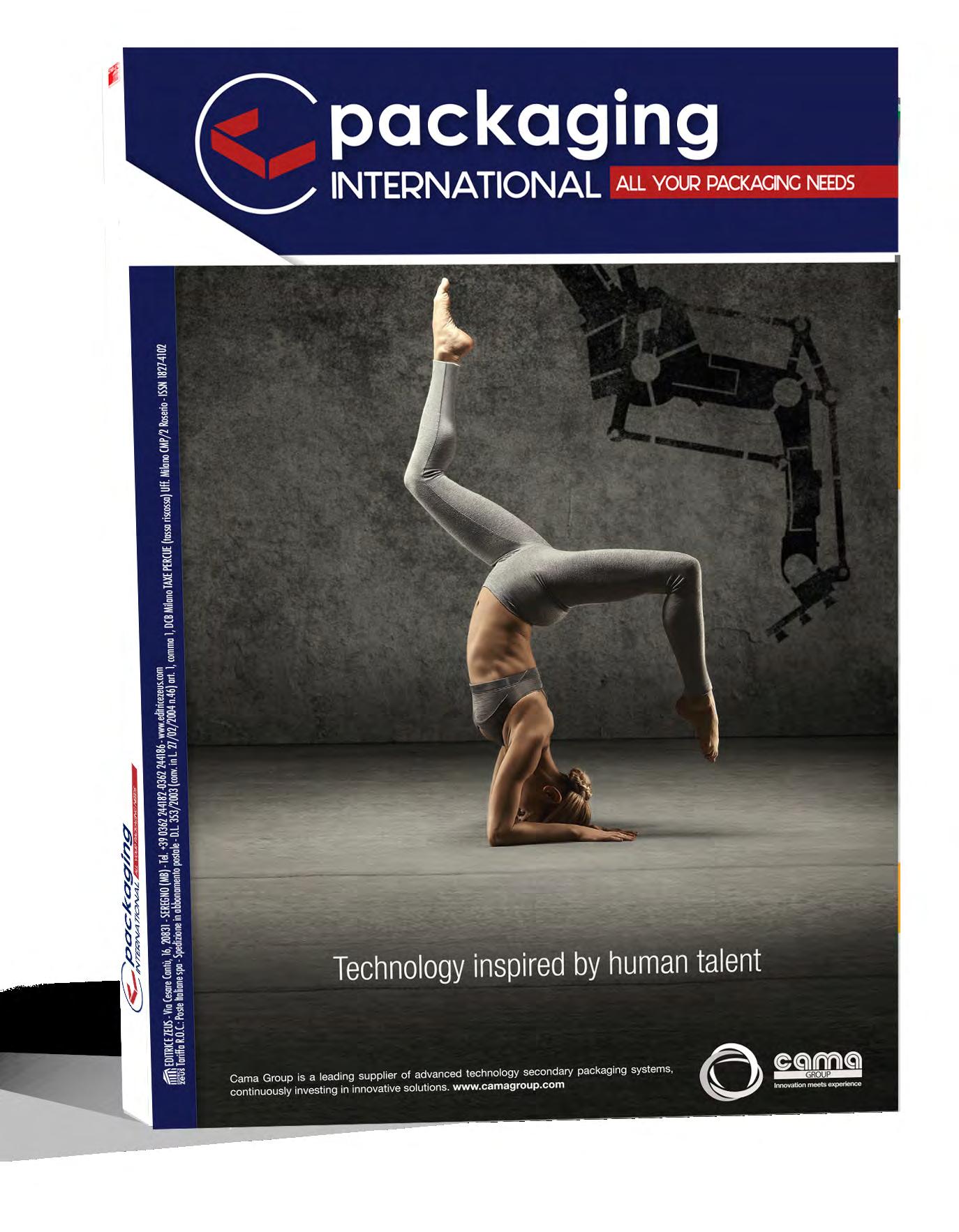



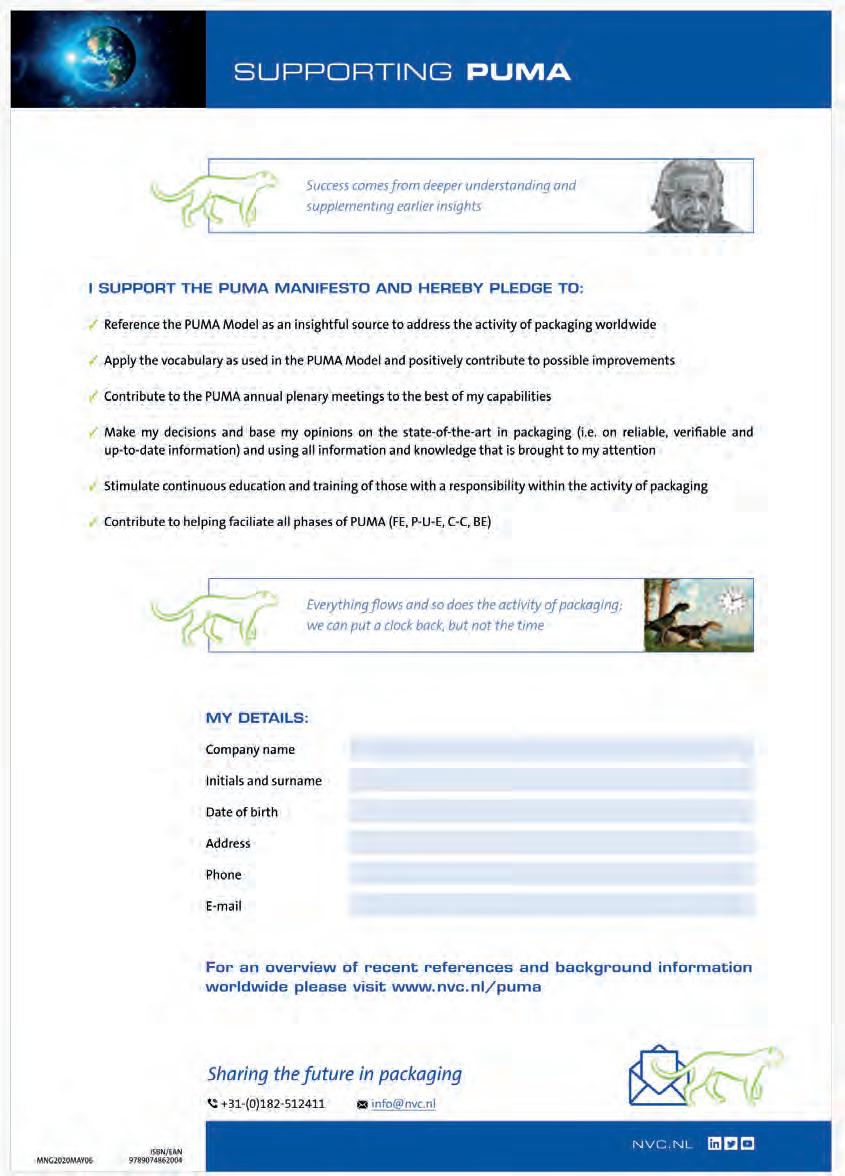

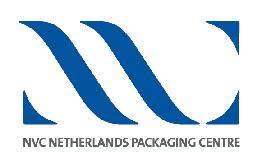
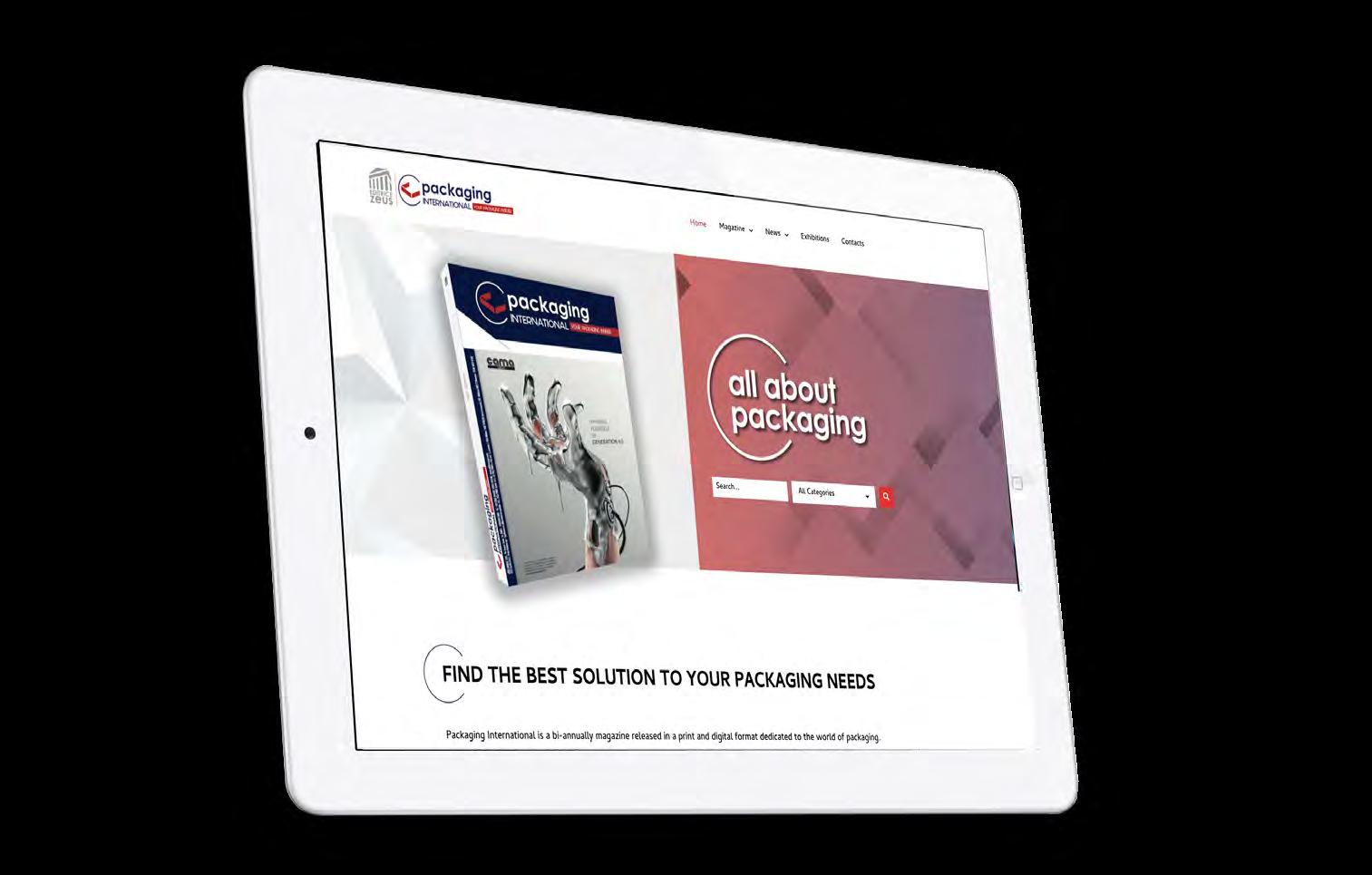




EDITRICE ZEUS Via C. Cantù, 16 - 20831 Seregno (MB), Italy tel. +39 0362 244.182 - 0362 244.186 - www.editricezeus.com MAGAZINES and WEB PORTALS focused on PACKAGING technology for FOOD and NON-FOOD industry YOUR PACKAGING INSIDER PACKAGING INTERNATIONAL_+editrice.indd 1 23/04/20 18:21 MAGAZINES AND MORE PUMA - NVC.indd 6 in partnership with: MEDIA FOCUSED ON: technology for packaging and for the food&beverage industry www.editricezeus.com packaging-mag.com Publisher since 1981
The Ecological Talent of Packaging
The label serves as the first “physical” point of contact between companies and consumers, satisfying the latter’s need for thorough, accurate, and transparent information. As such, the label plays a crucial role in guiding consumer choices.
With regard to sustainability, labels now provide more information than ever before about the product as a whole: from its raw materials to its possible uses, all the way to the environmental sustainability and recyclability of its package. Essentially, the packaging also talks about itself, assuming a new and influential role in consumers’ decision making processes. To put it simply, when consumers perceive an environmentally conscious approach, sustainability, recyclability, and overall green practices, they are more inclined to make a purchase. This significant aspect is something that companies are increasingly aware of.
The Key Words of Sustainable Labelling
According to a recent study by the Immagino GS1 Italy Observatory, consumers unquestionably prefer packaging that is attentive to sustainability, and certain key words are able to capture their attention more than others. The study (conducted twice yearly) is based on approximately 130,000 fast-moving consumer goods (FMCGs), comparing the products in the Immagino database as of June 2022 with those available for sale in large retail outlets as surveyed by NielsenIQ. The numbers are extremely telling: as of June 2022, the Immagino Observatory’s products generated over €41 billion in sell-out, equal to 82.3% of what was sold by hypermarkets and supermarkets in the overall FMCG market in Italy, with more than 133,000 products.
SUSTAINABLE Let’s start with the general results: the “sustainability” claim has spread to a significant portion of the market (+15.3%), arriving at 4,024 products, and has exceed-
As consumers increasingly demand greater sustainability from the goods they purchase, companies respond by paying closer attention not only to the product itself, but also to its packaging.
According to recent data from the Immagino Observatory, this shift in focus can be observed on product labels, with a subsequent impact on consumer behaviour.
ed €3 billion in sell-out, with an annual growth of 5.5%. For the food sector, the categories most involved in this trend are those of traditional biscuits, supermarket ice cream, and packaged pastries. Meanwhile, in the non-food sector, the Cleanright brand of dish and laundry detergents went into free fall, with sales dropping by 1.7%. The same trend could be seen for products with a sustainable cleaning certification, which experienced a 33.2% drop in sales over the 12-month period (laundry detergents, fabric softeners, and dish soaps). As for CO2 emissions, labels that claim a reduction have experienced an 11.9% increase in sales, a sign of the market’s appreciation.
PLASTIC-FREE or LESS PLAS-

TIC Plastic remains a hot issue for the market, thanks to European regulations that want to limit its use and the concern of consumers who are highly aware of both the issue and the need to stop its widespread use. Thus, the turnover of the 1,625 products sold in packaging that claims “less plastic” has grown by 9%, surpassing €1.2 billion and driven by a 19.4% increase in the selection of products and by a rise in cured meats, seed oils, and shelled nuts. This trend is also confirmed by the increased sale of products with compostable packaging. Here, however, the positive trend can be seen not only in sales, with a two-digit growth of 10.7%, but also in the increase in products, which has soared by 25.2%, thanks to the switch from
plastic to compostable single-use tableware. A significant increase in turnover was also experienced by products that advertise the use of Master-Bi resins, with more than €62 million in sell-out (+12.9%) and with single-use tableware still playing a pivotal role.
Recyclability as True Value RECYCLABILITY Recyclability
is the major trending topic of sustainable packaging. So much so that fully 40.2% of the products being monitored mention it on their label (as compared to 37.5% the previous year). In other words, two out of five monitored products feature an indication that can help consumers to correctly recycle the product’s package. However, it must be noted that the absence of this information does not necessarily mean that the package is not recyclable. This is true primarily for glass, whose disposal is not mentioned, despite it being a 100% recyclable material.
Returning to the more than 52,000 products whose packaging indicates recyclability, in more than 85% of cases the package is completely (4.9%) or mostly (82.3%) recyclable, with a figure that has improved slightly as compared to the previous 12 months (+0.8%). During the same period, the number of products sold in non-recyclable packaging decreased, now down to 3.5% as compared to 3.8% in June 2021. The sectors most involved in indicating the recyclability of their packaging as a true value are those from the freezer section (ice creams and
by Elisa Crotti
frozen foods), followed by fresh produce. The number of non-food products with packaging that mentions recyclabality is decidedly lower, but still growing: 39.5% in household care, 24.1% in personal care, and 23% in pet care. Beverages too are at the bottom of the list, with the same percentage as pet care, but this is justified by the significant presence of glass containers which, as mentioned earlier, often lack indications regarding recyclability.
RECYCLABLE MATERIALS
What is the packaging of the more than 52,000 products monitored by Immagino, on which the recyclability is indicated, made of? The largest share is made up of packaging composed of a single material, accounting for 38.2% of the products (a reduction of 1.4% as compared to the previous year). The remaining 61.8% of items have packaging made up of multiple materials, in most cases two (35.1%) or three (19.8%).
When it comes to sustainable packaging, the consumer response is loud and clear. The sale of products that are entirely or mostly recyclable is undoubtedly greater, for both commercial brands and for the top twenty, followed by smaller producers. This is an unquestionable indication that consumers strongly approve of companies’ green policies and that small choices can make a big difference.
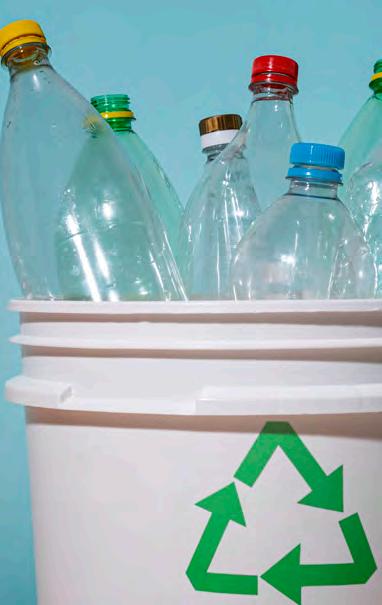
PACKAGING labelling - weighing
newspaper edition - 5
packaging in now...
Our LinkedIn pages talk about your company


Social media has become a fundamental tool for spreading information and web pages represent an important showcase for business activities. However, the real challenge is played out on social media, where interaction with a wide and selected audience is immediate.

On LinkedIn, Editrice Zeus devotes ample space to talk about your company and its activities. By following our pages, you can stay constantly updated on our initiatives and everything related to the publishing world.
Don’t miss the opportunity to discover more about your favorite company! Follow us now on LinkedIn.
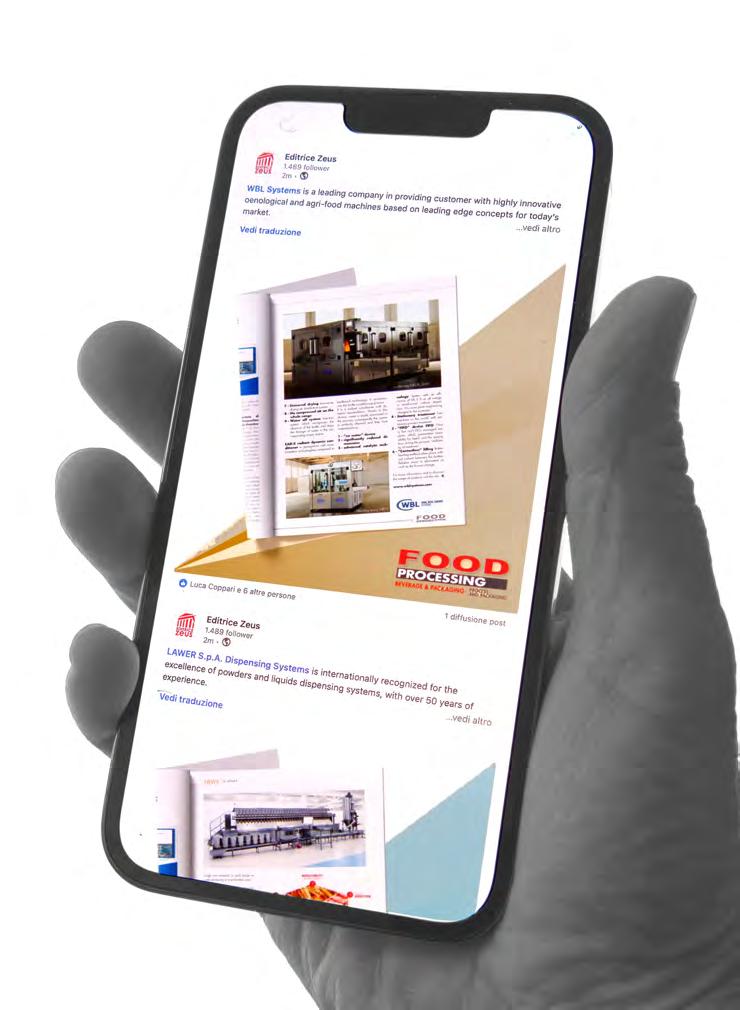
Sonia Bennati, Editor-in-Chief of Editrice Zeus, is undoubtedly the reference point for all the insights, corporate initiatives, and video interviews for companies that rely on our services.
On our LinkedIn page, you can find articles, interviews, and news about all the editorial activity,bothprintanddigital,of ourpublishinghouse.
Food labeling: between regulations and technological innovations
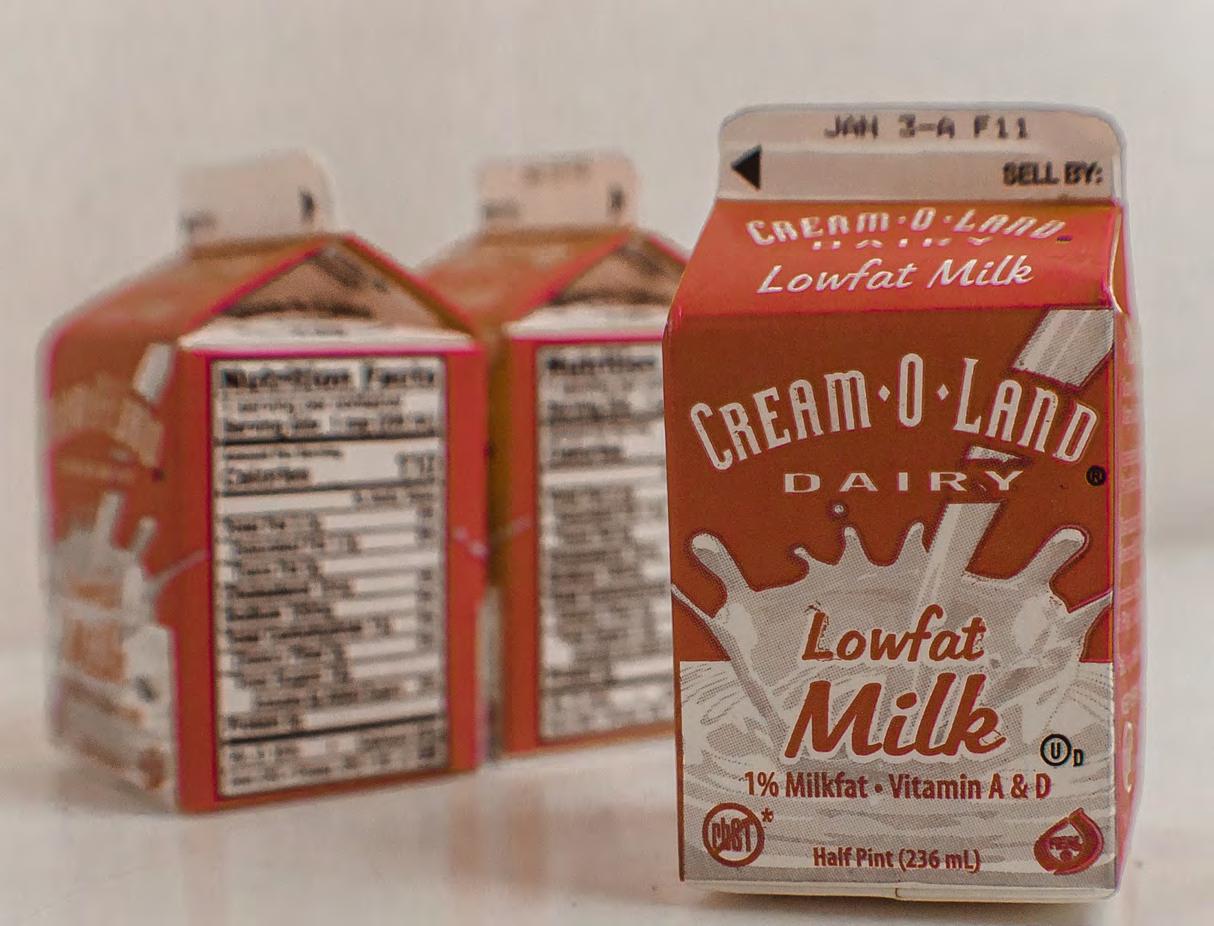

Food labeling allows consumers to have clear and transparent information about the products they purchase, as well as ensuring compliance with current regulations. In this article, we will examine the main rules governing food labeling and the technological innovations available to companies to improve production and control processes.
The regulatory framework
The regulations on food labeling are based on Regulation (EU) No. 1169/2011 of the European Parliament and of the Council, known as FIC (Food Information to Consumers).
This regulation establishes the mandatory information to be included on the label, such as the product name, list of ingredients, expiration date, storage conditions, allergen indication, and nutrition table.
The health ministries of the various countries are the entities responsible
Food
for controlling and monitoring compliance with regulations on food labeling, including the prohibition of unfair and misleading commercial practices.
Technological innovations in the food industry
Food companies are using new technologies to improve product traceability and ensure compliance with current regulations. Among these, we find:
1- Blockchain: This technology allows for the creation of a secure
and unalterable digital record of transactions along the production chain. In this way, companies can guarantee the origin and quality of the ingredients used, offering consumers greater transparency.
2- Artificial intelligence (AI) and machine learning: The use of advanced algorithms and automatic learning systems allows for real-time analysis and monitoring of product quality, and the detection of any anomalies or irregularities in the labels.
3- Smart labels and QR codes: The adoption of interactive labels
by Walter Konrad
and QR codes allows consumers to access detailed information about the product and its production chain simply by using a smartphone. These solutions offer a more complete and personalized experience for the customer, who can make more informed purchasing decisions.
4- Internet of Things (IoT) and sensors: The use of connected devices and advanced sensors along the production chain allows for the collection and real-time monitoring of data, improving resource management and reducing waste. For example, sensors can be used to monitor temperature during the transport and storage of products, thus ensuring the safety and quality of food.
5- 3D printers for labels: 3D printing allows for custom labels for each product, with greater flexibility and a lower incidence of errors. This technology can be particularly useful for companies that produce food in small batches or with specific characteristics, such as organic or gluten-free products.
6- Digital platforms and management software: The use of digital platforms and specific software for label management simplifies and speeds up the process of creating and revising labels. These tools can help companies comply with current regulations and prevent any penalties for non-compliant labels.
In conclusion, food labeling is a topic of great relevance, both from a regulatory and technological point of view. Companies in the industry must comply with the provisions in force, providing clear and complete information to consumers. At the same time, the adoption of innovative technological solutions can contribute to improving the quality, safety, and traceability of food products, as well as ensuring transparency and customer trust.
PACKAGING labelling - weighing
newspaper edition - 7
labeling is of fundamental importance to ensure the safety and transparency of products.
packaging in now...
Companies are using technologies such as blockchain, AI, QR codes, and sensors to improve product traceability and quality.
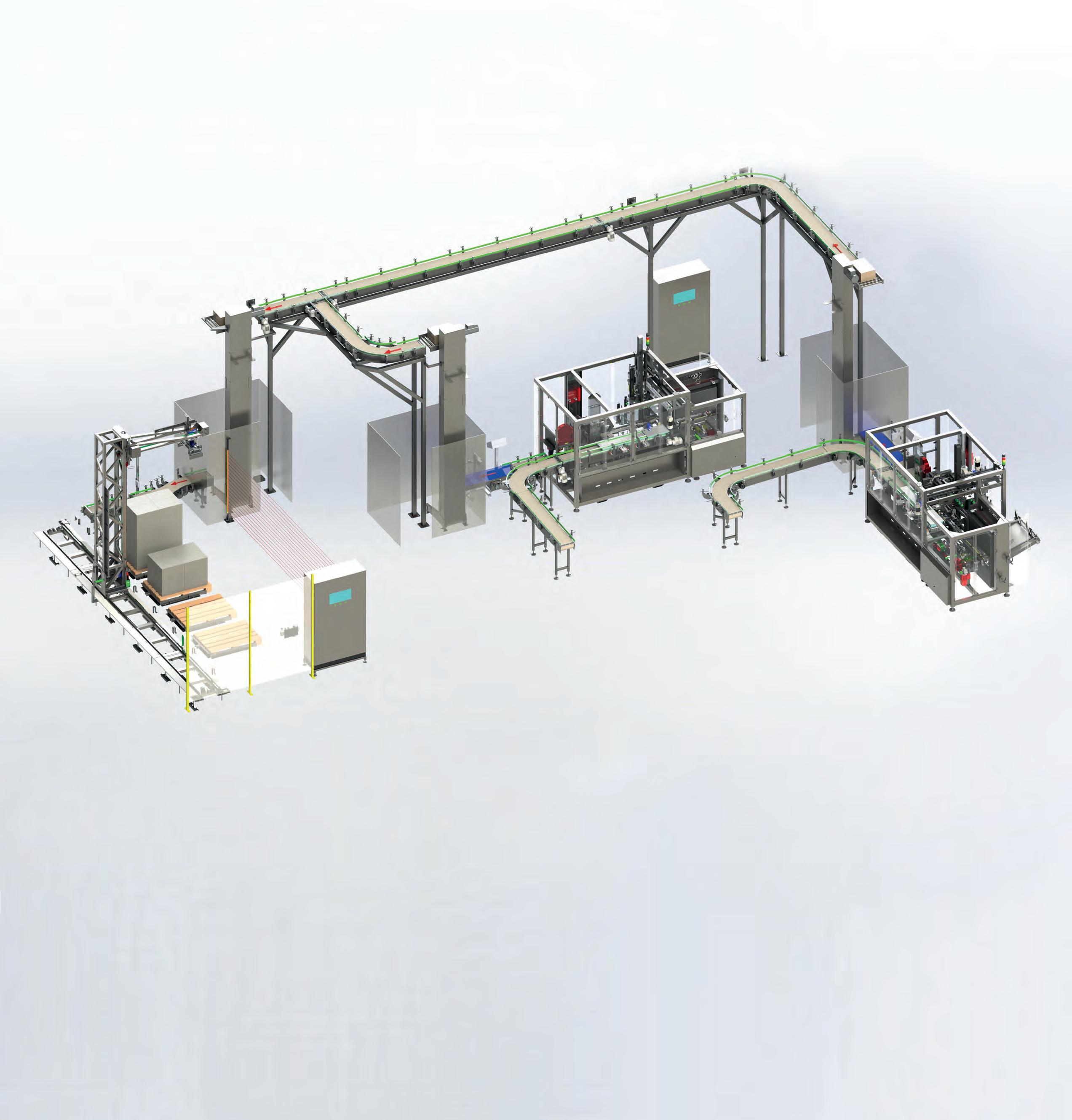





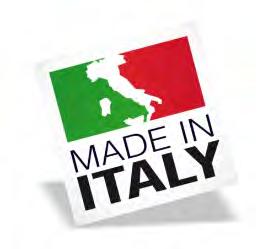
We turn today’s challenges into tomorrow opportunities with state-of-the-art machines and dedicated solutions in secondary packaging and in the end of the line to meet the future needs of a constantly evolving market We pack your future www.comegapackaging.com COMEGA srl Via Roma, 188 47014 – Meldola (FC) – Italy Tel. +39 0543 815962 info@comegapackaging.com














 SONIA V. MAFFIZZONI Editorial Manager
SONIA V. MAFFIZZONI Editorial Manager





































